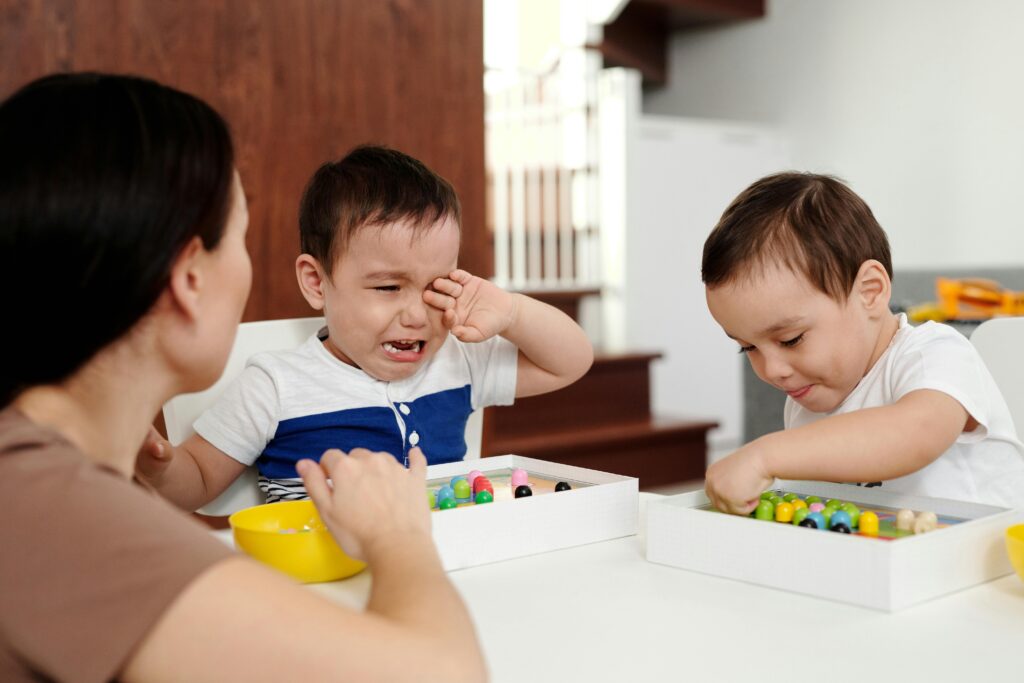Understanding Parenting Styles and Their Impact on Family Life
Every parent wants what’s best for their child. But did you know that the way we parent—our parenting style—can shape not just our child’s behavior, but also the entire family dynamic?
If you’re a parent, caregiver, or just curious about how parenting styles influence family life, you’re in the right place. In this blog post, we’ll explore the different types of parenting styles, how they affect children and families, and how you can find your own balanced approach.
What is a Parenting Style?
A parenting style is simply the way a parent interacts with and raises their child. It includes everything from discipline methods to how much freedom a child is given. Over the years, child development experts have identified four main styles, each with its own effect on a child’s emotional and social development.
The Four Main Types of Parenting Styles
Let’s break them down one by one. Remember, every child is different, and so is every parent. But understanding these styles can help you reflect on your own approach.
1. Authoritative Parenting – The Balanced Approach
Authoritative parenting is often seen as the most effective style. These parents are both responsive and demanding. That means they set clear rules but are also warm and open to their child’s needs.
- They explain the reasons behind rules
- They listen to their children’s opinions
- They encourage independence while maintaining boundaries
Think of it like a coach: they push their kids to do well but also support them along the way. Research shows that children raised this way tend to be confident, socially competent, and responsible.
2. Authoritarian Parenting – The Strict Enforcer
This style is high on demands but low on responsiveness. Authoritarian parents set strict rules and expect them to be followed. There’s little room for discussion or flexibility.
- “Because I said so” is a common phrase
- They expect obedience without question
- They may use punishment rather than discipline
While this approach might produce obedient children, it can also lead to low self-esteem, anxiety, and difficulty with social interactions.
3. Permissive Parenting – The Lenient Friend
Permissive parents are warm and loving—but they struggle with setting limits. They let their children make their own choices, often without many rules or consequences.
- They avoid conflict and rarely say “no”
- They may act more like a friend than a parent
- Children may not learn self-control or respect for rules
These kids often grow up feeling loved, but they may lack structure and struggle with responsibility or authority later in life.
4. Uninvolved Parenting – The Hands-Off Approach
Uninvolved parenting is just what it sounds like—parents provide basic needs but are emotionally distant and less engaged in their child’s life. In extreme cases, it can even border on neglect.
- Little communication or attention
- Minimal rules or guidance
- Children may feel unimportant or ignored
Kids raised with this style often lack self-esteem, struggle socially, and have academic difficulties. They might also find it hard to form emotional connections as they grow up.
Why Parenting Style Matters
Think of your parenting style as the foundation of your family life. The way you interact with your child affects everything from their self-confidence to how they treat others.
Children need both love and structure to thrive. Striking the right balance between support and discipline can shape your child’s future behavior, relationships, and even mental health.
But it doesn’t just impact children. It affects the entire atmosphere of your home. A warm, communicative style tends to create a happier family environment, while harsh or inconsistent approaches can lead to conflict and stress.
Finding the Right Parenting Style for You
There’s no one-size-fits-all formula. Many parents use a mix of different styles depending on the situation. You might be more authoritative when it comes to schoolwork but become permissive during playtime. And that’s okay!
Here are a few tips to help you develop a more balanced approach:
- Be consistent: Kids feel safer and more confident when they know what to expect.
- Listen actively: Encourage your child to share their thoughts.
- Set clear expectations: Explain the “why” behind your rules.
- Don’t be afraid to say no: Boundaries help children feel secure.
- Practice empathy: Try to see things from your child’s point of view.
It’s also important to be patient—with yourself and your children. Parenting is a journey with ups and downs. No one gets it right all the time, and that’s perfectly normal.
How Culture and Life Circumstances Influence Parenting
Something else to consider is that culture, background, and life experiences also influence parenting styles. For example, families dealing with financial stress or health issues may lean toward a stricter approach simply because they’re overwhelmed.
Likewise, cultural values—such as respect for elders or community over individuality—can shape how parents interact with their children. So, before judging anyone’s parenting choices, it’s helpful to understand the context behind them.
Parenting Through Different Life Stages
As your child grows, your approach will naturally need to adjust. What works for toddlers might not work for teenagers. Here’s a quick breakdown:
- Early Childhood: Focus on warmth, routine, and clear rules.
- Middle Childhood: Encourage independence but maintain structure.
- Teen Years: Open dialogue becomes even more important. Set boundaries but respect their growing sense of identity.
Staying flexible and aware of your child’s changing needs is key to a strong, healthy relationship.
Bringing It All Together
So, what’s the takeaway? While no parent is perfect, being mindful of your parenting style can make a big difference in your child’s development—and your family’s overall well-being.
The authoritative style (high expectations with warmth and support) is often the most beneficial. But what truly matters is the ability to adapt, learn, and grow as a parent.
Ask yourself:
- How do I handle discipline?
- Do I listen to my child’s perspective?
- Am I being consistent with my expectations?
- How does my parenting style impact our family life?
Your answers can help you make small, meaningful changes that benefit both you and your children. And remember—you don’t have to do it alone. There are parenting classes, books, and support groups that can help you on this journey.
Final Thoughts
Parenting is one of the hardest—and most rewarding—jobs out there. By understanding the different parenting styles and reflecting on your own, you’re taking an important step toward building a stronger, healthier family.
And that’s something every child—and parent—deserves.
So, what’s your parenting style? Have you noticed how it affects your family life? Feel free to share your experiences in the comments below—we’d love to hear from you!



